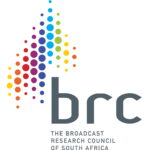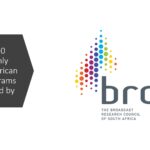
With preparations in full swing for PAMRO’s All Africa Media Research Conference in Mauritius in August, we caught up with board member Oresti Patricios to discuss research developments that have taken place in Africa over the past two decades.
The Pan African Media Research Organisation (PAMRO) was established 20-years ago as a NPO by a group of professionals who realised that for Africa to become a major international player in the media, marketing and advertising spaces it was necessary for stakeholders across all African countries to come together to create a uniform research infrastructure. The goal was to gain insight and develop a deeper knowledge of consumer and media behaviour in Africa that could inform decisions on how best to reach, and communicate with, specific target markets.
PAMRO continues to be run by volunteers across the continent and has grown and developed significantly in membership and reach over the years. Key experts and stakeholders regularly attend its annual meetings and All Media Research Conference ‒ which takes place in a different African country each year ‒ to share knowledge, successes and challenges on the road to realising high-quality, harmonised research methodologies that will ultimately result in a continental media research database.
LJ: How would you describe the current level (quality and efficiency) of media research on the African continent?
OP: Media research has certainly been improving on the continent over the last few years. As new technologies become more available to consumers, such as mobile internet and smartphones, it also creates new opportunities for research. Hence, we see new innovative start-ups in the research space emerging as well.
However, African countries are at different maturity levels when it comes to research and even infrastructure so we do still have a lot of work to do to reach the level of data collection and insights where we should ideally be. The old adage that Africa is not a country is very true and each area has different challenges. That is why PAMRO is so important to get everyone working together on coherent methodologies in order to promote business and investment across Africa.
LJ: What milestones can you share with us relating to major improvements over the last decade?
OP: With disparate or even no data available on consumer habits or media consumption it is obviously difficult for brands to make investment decisions. The mission of PAMRO is to create a harmonised approach to media research across the continent and I can confidently say that we have seen major progress and we are starting to see much more standardised data and insights.
This leads to better investments and eventual economic growth for the continent. The proliferation of mobile, internet and social media has also made it much easier and cost-effective to collect valuable information. Kenya is currently working on a model that may become an accepted standard.
Can you measure the impact that PAMRO has had on the transformation in media research over the last decade?
I believe we certainly can – as mentioned we have seen a more standardised approach to media research. I am delighted that we will be celebrating the 20th PAMRO annual conference in August 2019. Our membership is growing and attendance to the conference has also grown.
We now have speakers and delegates from across the globe including the USA, Europe, the Middle East and China attending to share insights but also to learn about developments in African research. It shows that as an organisation we are now well established with a clear vision and objectives.
#PAMRO2019 will take place in Mauritius at the Hilton Mauritius Resort and Spa, Flic-en-Flac from 25 to 28 August 2019 and will explore the theme: Investing in research, investing in brands, investing in Africa. The conference is brought to you in proud partnership with DSTV Media Sales, Nielsen, GeoPoll, Ornico, Plus 94 and Ipsos.
- Boomtown’s interns design new CI for Ubomi - 16th February 2022
- The Infinite Dial® 2022 South Africa to be presented on 24 February! - 16th February 2022
- It’s Random Acts of Kindness Week, and The Good Things Guy is named one of the world’s top 100 innovation success stories - 16th February 2022





